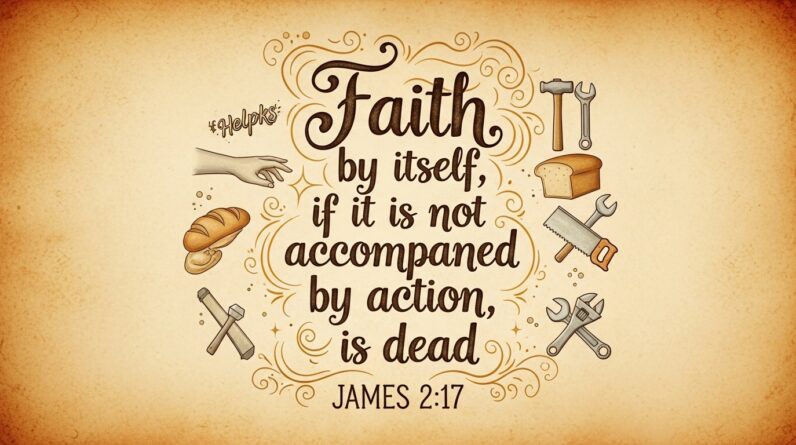Explore the profound teachings of “The Parable of the Unforgiving Servant.” Dive into the boundless nature of forgiveness and mercy in this insightful reflection.
The Parable of the Unforgiving Servant – Forgiving Others as Christ Forgave Us (Matthew 18:21-35)
Scripture Passage
Matthew 18:21-35
Read the full chapter here.

Introduction
Hello, dear reader. Today, we’re going to dive into the profound yet relatable story known as “The Parable of the Unforgiving Servant.” This story, nestled within the Gospel of Matthew, challenges us to examine one of life’s deeply rooted complexities: forgiveness. Specifically, we’ll explore how Jesus calls us to forgive just as He forgave us. Forgiveness is a universal struggle—one that transcends time and culture. We all grapple with it at different stages in our lives. But Jesus offers a guiding light through this story, which we’ll unpack together. So, grab your favorite warm drink, cozy up in your preferred reading spot, and let’s explore what it means to forgive more deeply and meaningfully. You can follow along using the scripture link provided to ensure you fully engage with the text.
Point 1: The Importance of Infinite Forgiveness
Key Scripture: Matthew 18:21-22
In these verses, Peter asks Jesus how many times he should forgive someone who sins against him. “Up to seven times?” he proposes, perhaps thinking he is being generous. Jesus astounds him with an unexpected response: “I tell you, not seven times, but seventy-seven times.” Jesus isn’t handing us a numerical limit, but rather, He is emphasizing the boundlessness of forgiveness—its infinite nature.
Explanation
Jesus’ answer was radical for Peter’s time and possibly even more today. We tend to keep mental tallies of wrongs done against us, setting limits on our patience and willingness to forgive. But Jesus flips our understanding upside down with His challenge to forgive generously and without keeping score.
Illustration
Let me share a personal experience. I recall a colleague who repeatedly undermined my efforts at work. My natural impulse was to hold a grudge, to harbor bitterness as a defense against further hurts. But reflecting on this passage prompted me to release that grip. It was freeing, like setting down a burden too heavy to carry. Forgiveness doesn’t always change the other person, but it transforms us, offering peace and grace.
Application
How does this apply to your life? Picture the relationships where you’ve withheld forgiveness. Imagine the release and healing that would follow if you let go of resentment and chose forgiveness instead. I encourage you to incorporate this unlimited forgiveness into your daily life. Embrace Jesus’ call to love endlessly, practicing forgiveness as an act of faith and trust in His divine plan.
Point 2: Understanding Mercy Over Justice
Key Scripture: Matthew 18:23-27
Jesus continues by telling a parable: A king decides to settle accounts with his servants. One servant, owing an astronomical debt he cannot pay, pleads for patience. Moved with compassion, the king forgives the entire debt, an act of staggering mercy.
Explanation
This part of the parable juxtaposes justice and mercy. The servant’s debt represents our sin—immeasurable and beyond settling. Yet through Jesus, God shows us immeasurable mercy, forgiving us entirely. The king’s choice is startling; it defies the human inclination toward justice as retribution. Instead, it lifts mercy as a higher principle.
Illustration
Think of reconciliation stories where deep pain and wrongs were overcome by sheer mercy. An illustration is found in the story of Anthony Ray Hinton, released from death row after 30 years for a crime he didn’t commit. Instead of bitterness, Hinton expressed forgiveness for those who wronged him, demonstrating the powerful grace in mercy.
Application
How can you infuse mercy into situations where you hold the power to demand justice? Perhaps it’s in restoring a relationship after betrayal or offering a second chance to someone who faltered. Imagine how your life and community would transform if mercy overcame justice, creating spaces for healing and redemption.
Point 3: Reflecting on Our Own Need for Forgiveness
Key Scripture: Matthew 18:28-35
As the story nears its climax, the forgiven servant encounters another who owes him a mere fraction of his own debt. Instead of extending the grace he received, he seizes this debtor harshly, unwilling to forgive. This act of unforgiveness ultimately leads to his downfall.
Explanation
The servant’s actions mirror a spiritual truth: our inclination to forget our own forgiven state when facing others’ shortcomings. Jesus uses this stark conclusion to remind us of our need for continuous personal forgiveness and humility. We are all recipients of God’s mercy, and therefore, we are called to extend that same kindness to others.
Illustration
Consider those times you felt wronged and were quick to judge or lash out. I recall a family squabble where pride overshadowed understanding. Yet, when I remembered the countless times God has redeemed my failings, it softened my heart to forgive and reconcile. Recognizing our perpetual need for forgiveness can reshape our responses.
Application
Contemplate the areas where you struggle to forgive. Acknowledge your own need for daily grace and find inspiration therein. Challenge yourself to step beyond old grudges and judgments, reaching instead for reconciliation, as you’ve been reconciled by your Creator.
Conclusion
To wrap things up, let’s recap our discussion of this powerful parable. Firstly, it challenges us to embrace forgiveness without limit, offering others the same grace God continuously extends to us. Secondly, it juxtaposes mercy with justice, urging us towards compassionate resolutions. Lastly, the parable reflects our own need for forgiveness, drawing us to live with humility and understanding.
As you move forward, may you remember these lessons and integrate them into your daily life. Let’s end with a prayerful moment: may God grant you the strength to forgive as you have been forgiven, and the wisdom to choose mercy over judgment.
For further reflection, I encourage returning to Matthew 18:21-35 throughout your week. Let it guide and inspire your interactions and relationships.
As a ClickBank Affiliate, I earn from qualifying purchases.








